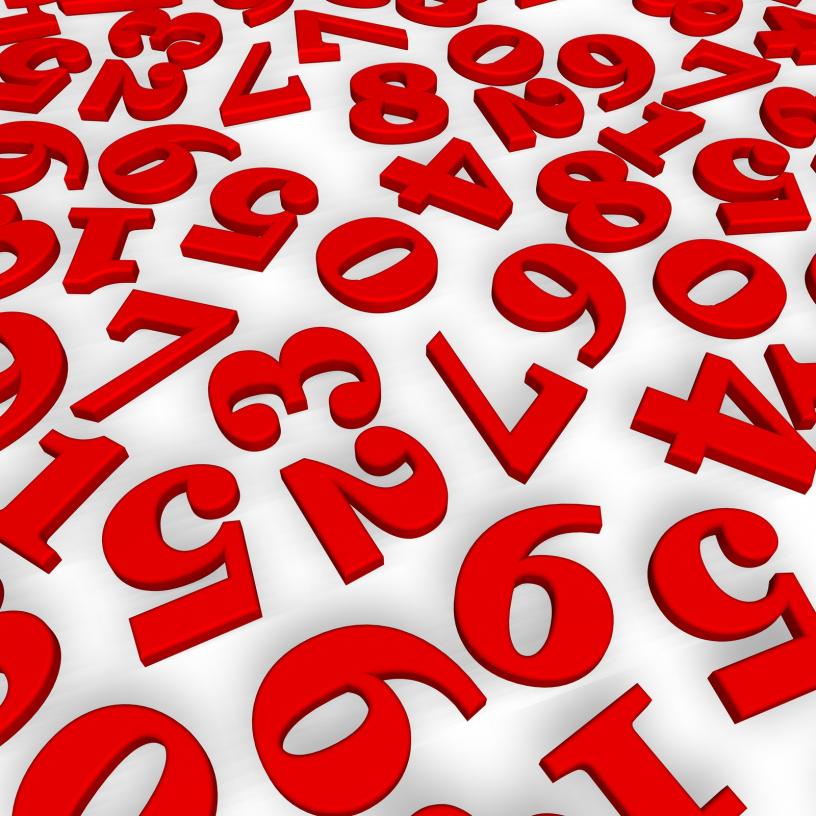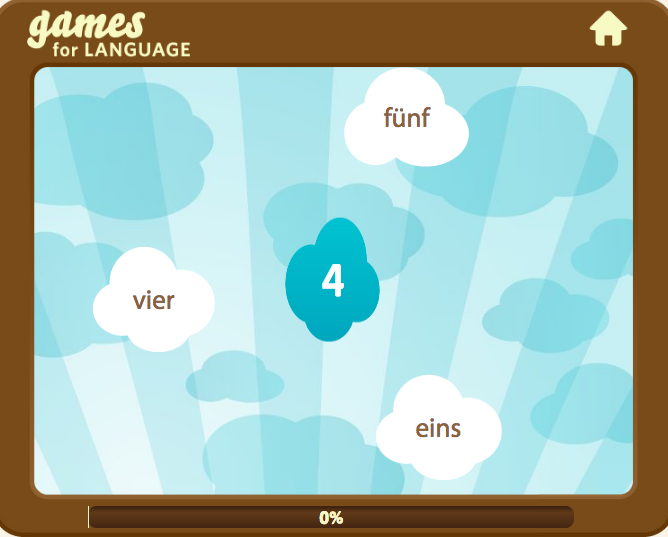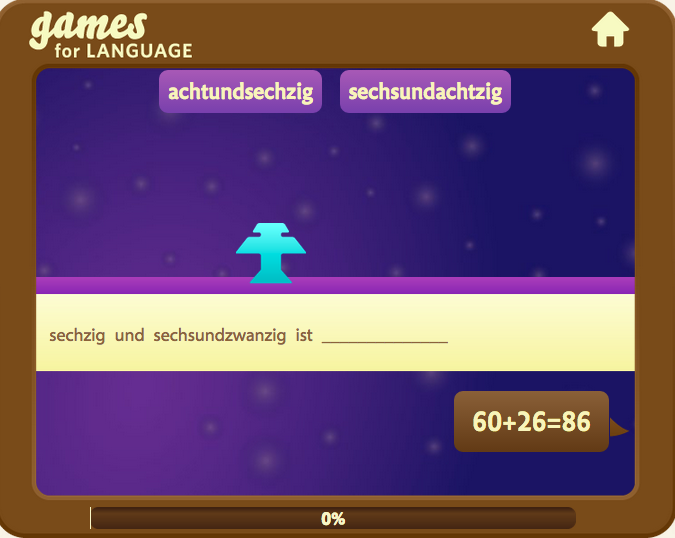1-2-3-German Numbers Are Easy - Just Know the Basics
 Traveling to a German-speaking country? And you don't speak much German?
Traveling to a German-speaking country? And you don't speak much German?
It's always good to have a few basic words and expressions on hand. In most German travel guides you'll find the translations for greetings, please, thank you, where is the bathroom, etc.
Learning a few of these makes interactions friendly. They can also help you out in a pinch. Knowing the basic German numbers can be especially helpful.
We found out how useful it was to know numbers in the local language when we traveled to China and Japan. We had little opportunity to use many of the Chinese and Japanese words and phrases we had learned. However, knowing the numbers proved very useful for bargaining and buying at the markets. (This was also the case in Italy - as we describe in this post about Italian Numbers.)
Numbers also came in handy when shopping in small stores or paying the bill in restaurants.
Most numbers you'll see are in digital form. You'll rarely need to spell them. But you do need to understand them when they're spoken. And to learn them, it helps to see them written out.
German Numbers 1-19
German numbers from 1 to 12 resemble the English. They have a similar sound, even though the spelling may be different. For most English speakers, they are not difficult to learn and remember.
"eins" (one)
“zwei” (two)
“drei” (three)
“vier” (four)
"fünf" (five)
"sechs" (six)
"sieben" (seven)
"acht" (eight)
"neun" (nine)
"zehn" (ten)
“elf” (eleven)
“zwölf” (twelve)
German numbers from 13 to 19 use the same model as in English. They combine (and in some cases also shorten) the lower numbers with the suffix “zehn” (teen).
So you have:
 • “dreizehn” (thirteen)
• “dreizehn” (thirteen)
• “vierzehn” (fourteen)
• "fünfzehn" (fifteen)
• "sechzehn" (sixteen) [Note the stem: "sech-"]
• “siebzehn” (seventeen) [Note the stem: "sieb-"]
• “achtzehn” (eighteen)
• “neunzehn” (nineteen)
• “twenty” (zwanzig)
In this Quick German Numbers Game to the right, you can practice these easy German numbers from 1-20:
Counting by Tens: 20, 30, 40, etc.
The German numbers between 20 and 90 that end in a zero follow the same pattern as in English: by adding the suffix “-zig” (in English “-ty”) to a form of the numbers 2 to 9.
(Note the slight irregularities below for 20, 20, 60, and 70.)
"zwanzig" (twenty)
“dreißig” (thirty)
"vierzig" (forty)
"fünfzig" (fifty)
"sechzig" (sixty)
"siebzig" (seventy)
"achtzig" (eighty)
"neunzig" (ninety)
Note:
• 20 ("zwanzig"), which uses only the first two letters of "zwei"
• 30 (“drei-ßig”) which uses the suffix “-ßig” (spoken “-ssig”)
• 60 (sechzig) drops the "s" of "sechs"
• 70 ("siebzig") cuts the "en" of "sieben".
Note also a regional variation with these numbers:
• In northern Germany and standard German, the ending of these numbers has a “ch” sound: as in “zwanzich.”
• More to the south, including in Bavaria and Austria, you'll hear the ending “zik,” as in “zwanzik."
German Numbers 21-99
The numbers beyond 21 that don't end in a zero - although regular and straightforward - can be confusing to English speakers as they deviate from the English model. The German for “twenty-one” is “einundzwanzig” (literally, oneandtwenty).
This turned-around structure in German is consistent:
• "einundzwanzig" (twenty-one)
• "zweiunddreißig" (thirty-two)
• "dreiundvierzig" (forty-three)
• "vierundfünfzig" (fifty-four)
• "fünfundsechzig" (sixty-five)
• "sechsundsiebzig" (seventy-six)
• "siebendundachtzig" (eighty-seven)
• "achtundneunzig" (ninety-eight)
It takes some getting used to that “fünfundvierzig” means “forty-five” and that “vierundfünfzig” is “fifty-four.”
Not to forget that we think of numbers mostly as digits. So, when you hear “fünfundvierzig” you have to think 45, and when you hear “vierundfünfzig” you need to think 54.
Mastering numbers well enough so that you can easily pay at a market, understand an address, or take down a telephone number can indeed be a challenge.
Telephone Numbers
In German, telephone numbers are normally given as a series of two-digit numbers (and if need be, with a three-digit number at the end). This can be especially annoying when a German tells you a telephone number that you want to write down.
For the number 32 57 42 86 91, you'll hear zweiunddreißig-siebenundfünfzig-zweiundvierzig-sechsundachtzig-einundneunzig.
To avoid confusion you are better off asking for each digit separately. This translates as: “Kannst du - (or formal) Können Sie - bitte die Ziffern einzeln sagen?”
German Numbers from 100-10,000
The numbers from 101 to 1999 are closer to the English model, except that in English the numbers are not written as one word.
For example, 101 is “(ein)hundertundeins” (one hundred one), or 333 is “dreihundertunddreiunddreißig” (three hundred thirty-three), with the inversion noted above.
German Historical Dates
Historical dates, of course, are rarely written out. But there are conventions on how to say them.
In German as in English, you use “hundreds” (not thousands) to say a specific year between 1101 and 1999.
So, 1386 is “dreizehnhundertsechsundachtzig” (all written as one word), and except for the inversion of the last part, similar to the English “thirteen hundred eighty-six."
 However, for 1066 (when the Normans invaded England), you use the word “tausend” (thousand) as in “tausendsechsundsechzig.”
However, for 1066 (when the Normans invaded England), you use the word “tausend” (thousand) as in “tausendsechsundsechzig.”
You do the same for the current century. 2021 is “zweitausendeinundzwanzig.”
You you may also hear, similar to English, “zehnsechsundsechzig” (1066), or “zwanzigeinundzwanzig (2021).”
In this Quick German Game on the left, you can practice some of the German numbers between 21 and 100, and beyond.
Millions, Billions, Trillions, etc.
A point of frequent confusion for English speakers may be the high numbers that are often quoted in news reports about global finances. We noticed, for example, some errors in the recent reporting on the negotiations between Greece and the European Union regarding Greece's financial obligations.
German and English agree on 1,000,000 - “eine Million” (one million). But, for the English “one billion,” Germans say “eine Milliarde,” and for the English “one trillion,” Germans say “eine Billion.” You can see the problem:
• "eine Million" ( one million)
• "eine Milliarde" (one billion)
• "eine Billion" (one trillion)
German Dialects
In the northern regions of Germany, as well as on national media (radio, television) you'll recognize most numbers as they are spoken. Even so, you may sometimes hear 2 (“zwei”) also pronounced as “zwo” or “zwee,” or with other slight variations.
However in certain parts of Germany, such as Cologne, Bavaria, the Black Forest region, as well as in Austria and in Switzerland, regional dialects may make certain numbers unrecognizable for the foreigner.
This YouTube clip gives you one Swiss German pronunciation for the numbers 1-12, and even these pronunciations are not uniform in all the Swiss German Cantons.
So knowing and practicing the German numbers should be high on your list when you are planning a trip to a German speaking country.
Pronunciation Practice
Practicing the German numbers also gives you an opportunity to work on your pronunciation. As in any language, getting the mouth mechanics right is also important in German.
• “Zwei” has a soft "v" sound instead of the English "w".
• "Drei” has a German "r" sound.
• “Vier” has German "r" at the end of the word.
• "Elf" and "zwölf" have you practice "l" the German way.
• "Fünf" has you practice German "ü".
• "Zwölf" lets you practice German "ö".
During the day, whether you are commuting to work, noting how many email messages are in your inbox, reading the newspaper, doing exercises, etc., you'll always see or count numbers. Pronounce them silently, or out loud if you can, in German. And you'll be surprised how fast you'll know them!
You want to Learn German Fast?
Not everyone will agree with Benny Lewis', the Irish Polyglot's statement "Why German is easy!". But, if you are serious about learning German - and even before you buy or subscribe to any expensive courses (except GamesforLanguage.com's German 1 and German 2 courses obviously, which are FREE!) you may want to learn more about Benny's approach.
Disclosure: The link above to Benny Lewis's site is to a partner's program with revenue sharing, if you decide to buy or subscribe.
